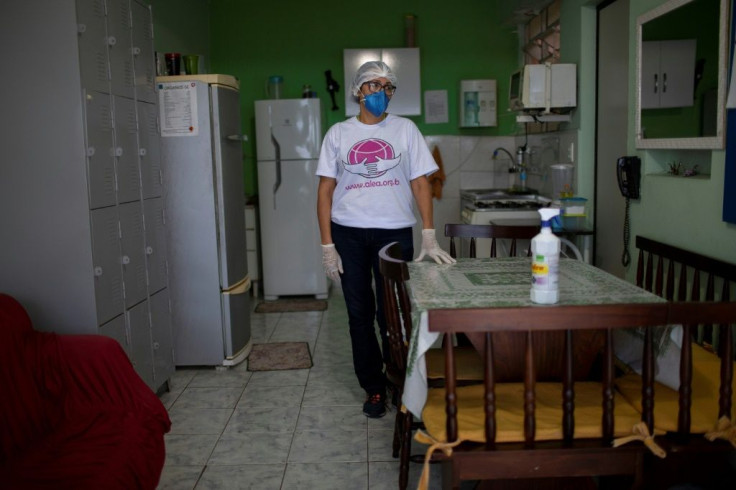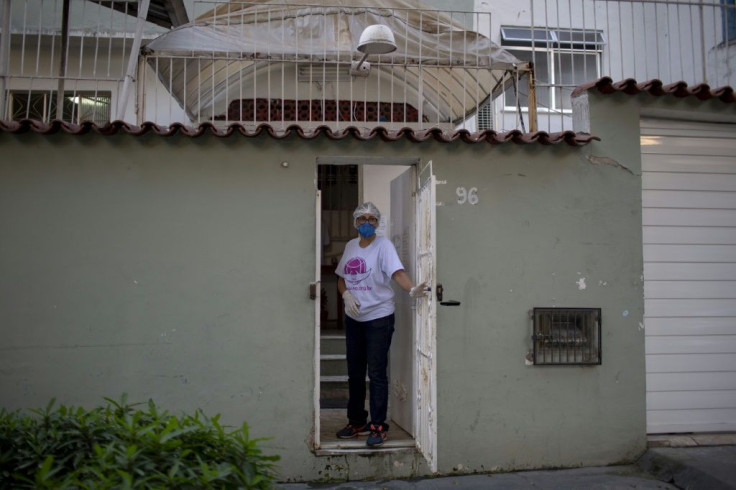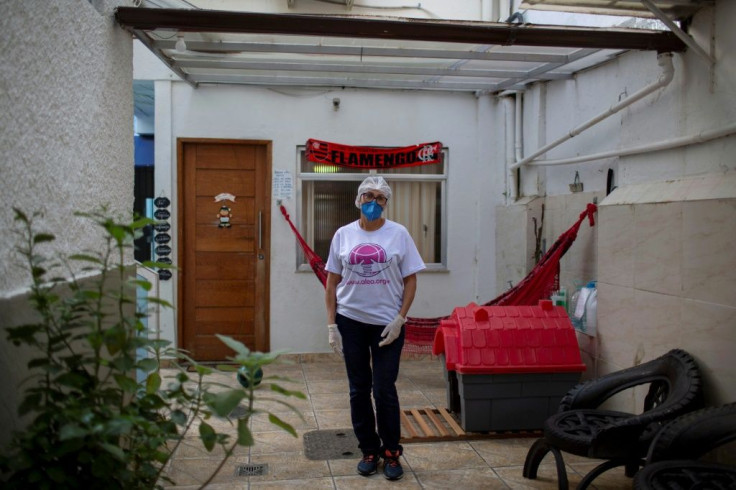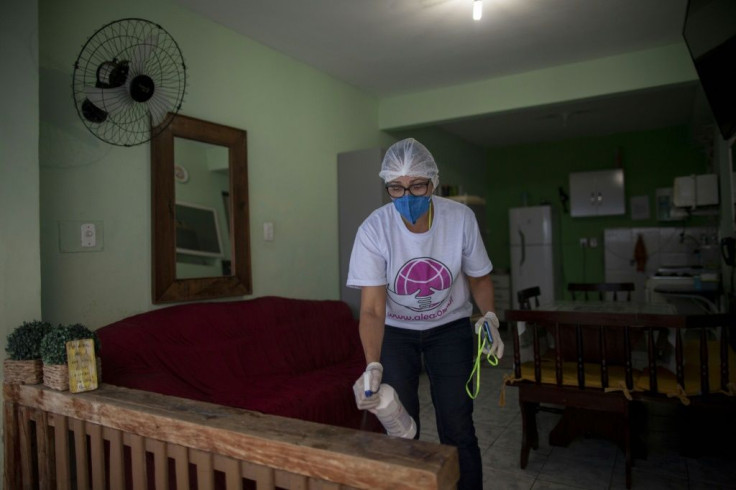Mom Who Lost Son To Virus Seeks Grace In Brazil's Tragedy
COVID-19 snuck up on Regina Evaristo as unexpectedly as it did the rest of Brazil.
One day, her son Alan was a dynamic young nurse, generous and full of life. The next day, he got sick. Fifteen days later, he was gone.
She never got a last hug, last goodbye or even a last look.
Alan was given a rushed burial by grave-diggers in protective suits, a scene that has played out countless times across Brazil as its death toll from the new coronavirus has surged to nearly 100,000, the second-highest in the world after the United States.

"It leaves a gaping wound," said Evaristo, a woman of 54 who runs a charity she and Alan founded together in 2009 out of her house in Rio de Janeiro.
"The person just disappears. You get a phone call saying, 'He died.' You can't see him. You can't hold a wake. It is pain intensified to maximum strength."
Alan was 38 years old. It was April 22, when the pandemic was just starting to explode in Brazil, which had registered 2,906 deaths at that point.
Instead of giving in to despair, Evaristo decided to turn their small charity, ALEA, into a massive medical aid operation.
She has raised a flood of donations and delivered thousands of badly lacking protective supplies and even meals to health care staff at hospitals in some of the poorest, hardest-hit areas in Brazil.

She is fighting to save other doctors and nurses from the lack of training, equipment and resources she blames for killing her son.
But it is an uphill battle in this sprawling South American country, where President Jair Bolsonaro has sown divisions by downplaying the virus as a "little flu."
Evaristo, who studied theology and accounting, worked a string of jobs before following her Christian faith into charitable work.

She is used to seeing the bleak living conditions in the impoverished favelas where her organization operates.
But nothing prepared her for the nightmare scenes she found at public hospitals pushed to the brink of collapse by the pandemic.
"I have videos of people in the same hospital as Alan who were abandoned because the medical staff didn't have protective equipment. They couldn't even bring them food," she said.
"A lot of people died alone and abandoned."
Health professionals have been hit hard, too, especially nurses.

More than 300 nurses and health technicians have died of COVID-19 in Brazil, among the highest numbers in the world, according to the Federal Nursing Council (COFEN).
Meanwhile, nurses have had to take to the streets to demand unpaid salaries and condemn the rampant corruption plaguing the public health system -- from embezzled funds for protective equipment to field hospitals that were budgeted for but never built.
"What's killed the most people isn't COVID, it's corruption," said Evaristo.
Evaristo adopted Alan when he was 12 -- one of 10 children she adopted, in addition to her three biological children, two of whom died.
A widow, she remembers Alan as the mediator in the family, the child who made peace among his brothers and sisters.
"When everybody's happy, I'm happy too," he used to say.
"He loved helping people," said Evaristo.
"He was born to work in the emergency room."
Alan, who had two decades of nursing experience, was working in the ER at Carlos Chagas State Hospital on Rio's northwest side when the pandemic hit Brazil.
He came down with a fever on April 7 and was diagnosed with COVID-19, but assured his family there was nothing to worry about.
Three days later, he was hospitalized with breathing trouble.
Three days after that, he was intubated.
He called Evaristo just before to say he was fine and that he would take care of a problem with her car when he got out of the hospital.
It was the last time she spoke with him.
He left behind a wife and nine-year-old daughter.
"I had two options at that point: do nothing but grieve, or use my pain to help other people," said Evaristo.
"I'm trying to do what Alan would have wanted."
© Copyright AFP 2024. All rights reserved.





















